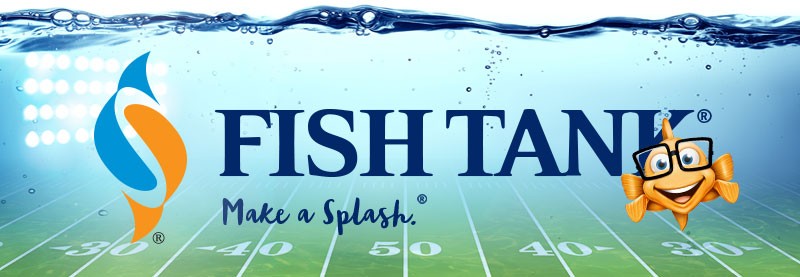Intellectual Property Insights from Fishman Stewart
Mini Article – Volume 23, Issue 16
Share on Social

Get Ready to Celebrate National Red Wine Day
By Kristyn Webb
National Red Wine Day is observed each year on August 28th. This year, to celebrate, we are sharing a fun story about wine, trademarks, and legal battle over the rights to use a family name on wine labels.
The business of making and selling red wine can be competitive. Many winemakers use a family name or surname, like Gallo, Mondavi, and Babich, to set themselves apart. Generally, under US law, trademarks formed by surnames are refused registration by the US Patent and Trademark Office on the Principal Register. So, how was Gallo, for example, able to obtain a registration? By claiming that “Gallo” acquired distinctiveness.
Acquired distinctiveness, also known as “secondary” meaning, refers to a legal concept that allows an otherwise unregistrable trademark to be registered if, through use and advertising, consumers come to recognize the mark as a trademark rather than associating the mark with its “primary” non-trademark meaning, in this case its meaning as a surname. To establish acquired distinctiveness, a trademark owner must provide evidence that its trademark has become associated exclusively with its products or services in the minds of consumers. Once a trademark has acquired distinctiveness, it can be registered and protected, allowing the owner exclusive rights to use the trademark in commerce and preventing others from using confusingly similar trademarks.
But when it comes to surnames used as trademarks, can one trademark owner prevent a person from using his or her own last name? The short answer is “yes, sometimes.”
In one famous lawsuit, the Taylor Wine Company sued to stop a competitor, Bully Hill Vineyards, from selling a line of wine branded under the trademark, “Walter S. Taylor.” The Taylor Wine Company was founded around 1880 by Walter Stephen Taylor at a place called Bully Hill in the Finger Lakes region of New York. Eventually, the Taylor Wine Company was moved from Bully Hill to another location and later sold to Coca Cola. The original vineyard located at Bully Hill was eventually sold too.
Then in 1958, Walter S. Taylor, the grandson of Walter Stephen Taylor, bought back the family vineyard at Bully Hill and in 1970 established Bully Hill Vineyards. Around 1977, Bully Hill Vineyards began making and selling wine under the label “Walter S. Taylor.” In response, the Taylor Wine Company sued to stop Bully Hill Vineyards from using the brand “Walter S. Taylor” claiming that consumers may be confused as to the source of the wine produced by Bully Hill Vineyards.
The court sided with the Taylor Wine Company and issued an injunction prohibiting Walter S. Taylor and Bully Hill Vineyards from using “Walter S. Taylor” as a trademark for wine. The court reasoned that the Taylor Wine Company was the senior user of the trademark and was well established as a winemaker in consumers’ minds. The court further noted that Walter S. Taylor had not inherited either the “Taylor” name as a trademark or the actual family vineyard. So, oddly, while Walter S. Taylor was a vintner, and came from a family of vintners, and was making and selling wine from his ancestral vineyard, he was not allowed to use his family name—his own name—on his wine labels. While he was able to buy back the family farm, he was not able to recover the family name.
But, in a nod to practicality and fairness, the court recognized that Walter S. Taylor may need to occasionally identify himself by name and occupation as a vintner. So, for example, he could use his own signature on wine labels and advertisements but had to include a disclaimer that he was not associated with the Taylor Wine Company. However, cleverly, Walter S. Taylor began selling “goat wine”—telling the media and consumers that, while Coca-Cola had gotten his name, they hadn’t “gotten his goat.”
The Taylor Wine Company (no longer owned by Coca-Cola) still manufactures and sells some dessert wines, but its status as a leading label has declined considerably since the 1970’s. Bully Hill Vineyards, on the other hand, is still open for tours and selling goat-themed wines and other merchandise.
Happy Red Wine Day. Cheers!
Kristyn Webb is the Group Leader of Fishman Stewart’s Copyright Practice Group, and is currently earning a Master’s Degree in Copyright Law at King’s College London.

Published August 25, 2023


Related Content from Fishman Stewart
In a recent decision, the U.S. Court of Appeal for the Eighth Circuit affirmed a jury verdict holding that the use of the "Success Kid" meme by a congressman's reelection campaign for fundraising purposes did not qualify as fair use.
In February 2024, proposed legislation was introduced in US House of Representatives which would extend copyright protection to golf courses. The bill is titled “Bolstering Intellectual Rights against Digital Infringement Enhancement Act” or the “BIRDIE Act”.
June is Pride Month, which honors the 1969 Stonewall Uprising in Manhattan and recognizes the impact that lesbian, gay, bisexual, and transgender (LGBTQ+) individuals have had on history locally, nationally, and internationally. The United States Patent and Trademark Office flies the Pride Flag and promotes the Pride community’s contributions with programming offered annually.
June is Pride Month. This year we are celebrating with some IP tips for drag performers! Drag performers can protect their intellectual property by registering the copyrights in their original works of music, choreography, and comedy sketches.
You’re rarely more than a few yards from Finny’s favorite chips, semiconductor chips to be precise. But what exactly is a semiconductor chip?
"May the 4th Be With You," also known as Star Wars Day, takes place annually on May 4th. The phrase is a pun on the iconic Star Wars catchphrase "May the Force be with you."
First, a big “thank you” to all our readers who have given feedback on our newsletter. We appreciate your interest and insights. It is always a treat to hear from you! Second, we wanted to provide you with updates on some of our most popular articles
“Palworld”— a computer game created and published by Japanese developer Pocket Pair. Released as an early access game in January 2024, it sold over seven million copies on the computer platform Steam in the first five days and had nearly 20 million players in the first two weeks.
This year’s Super Bowl featured a thrilling overtime victory for the Kansas City Chiefs over the San Francisco 49ers. With estimates as high as 123 million viewers, America's premier sporting event also serves as a grand stage for creativity and intellectual property protections that enhance the game’s success.
Valentine’s Day is just around the corner and jewelry sales are usually around $6 billion USD in the United States alone. In 2021, the US Customs and Border Protection agency seized over $1 billion USD worth of counterfeit pieces of jewelry.
IDENTIFYING, SECURING AND ADVANCING CREATIVITY®











